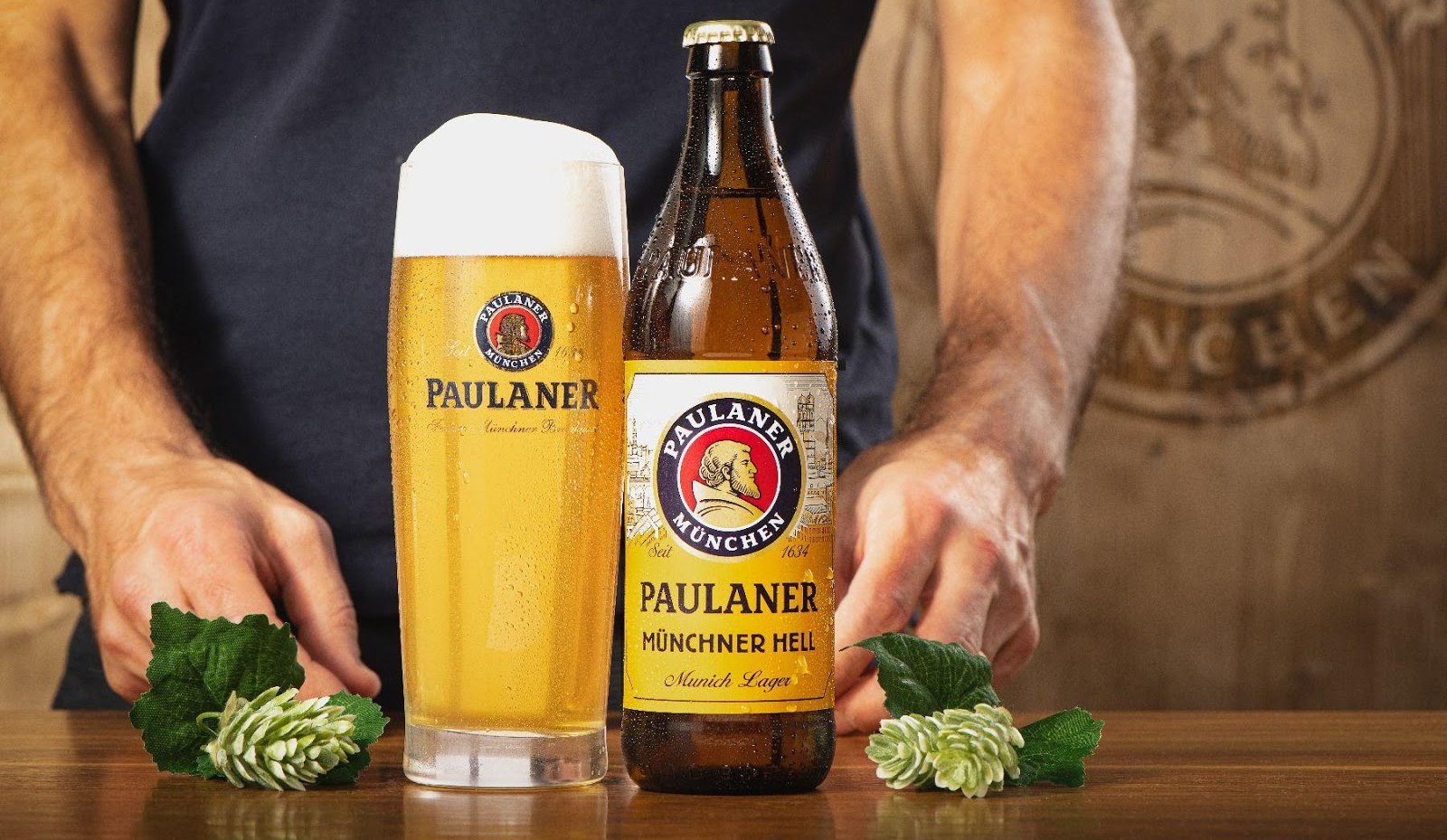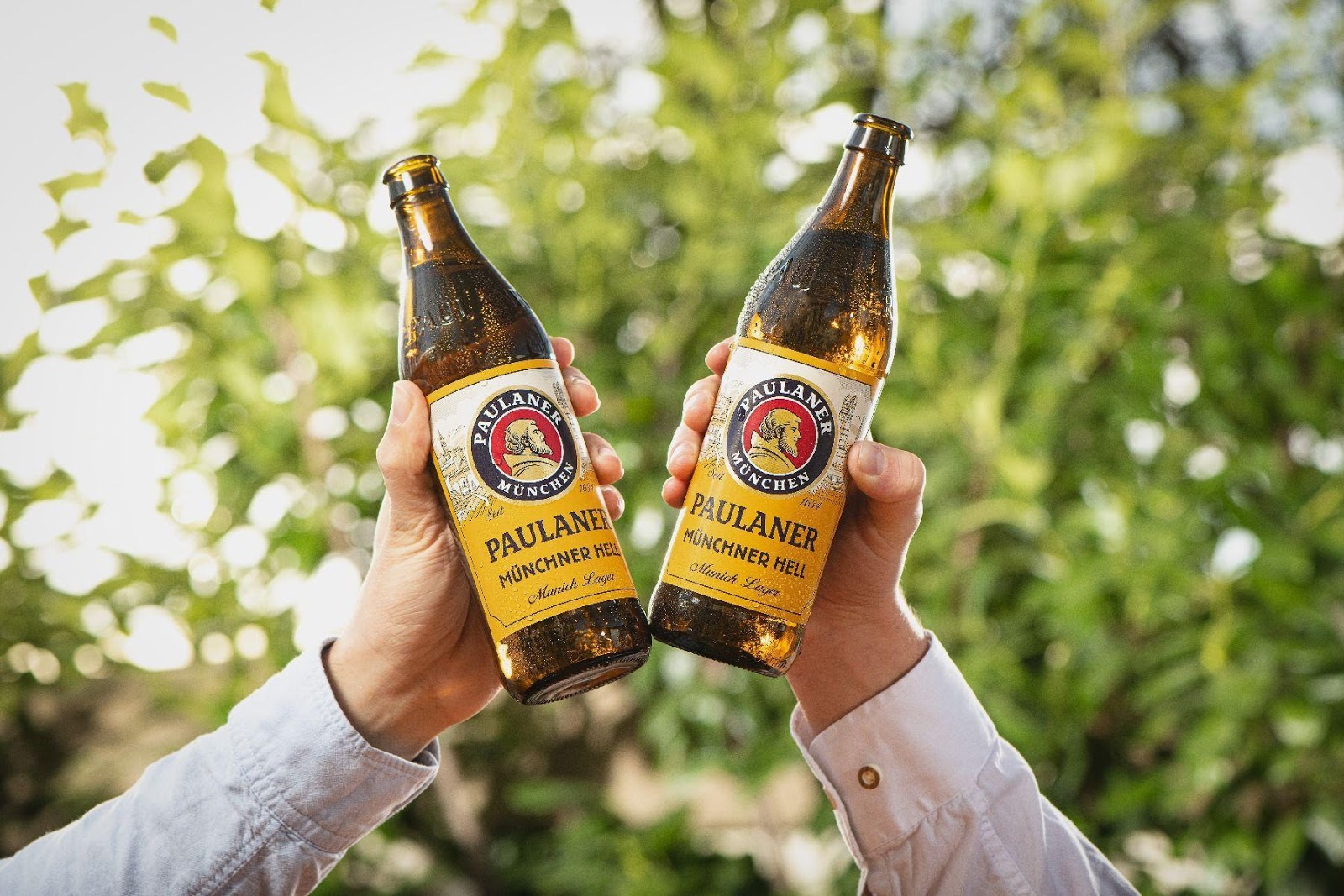The Paulaner Brewing Journey. Every Paulaner beer is still brewed exclusively in the hometown of Munich strictly according to the Bavarian Beer Purity Law. Visitors to Germany soon become aware of the lack of availability of foreign beers. In its very largest cities, one might come across a lonely Guinness tap among the pilsners, helles, weissbiers, kellerbiers and bocks, but Germans are as loyal to their domestic brews as they are to their BMWs, Audis and Mercedes.
The beer making process is both a science and an artform and has been the specialty of Munich-based brewery Paulaner for many years. Malt is added to the Mash Tun and left to steep in hot water, producing a sugary liquid called wort. This is a process called “mashing-in”. The malt is then steeped in hot, but not boiling, water for approximately an hour. This activates enzymes in the malt that causes starch in the malt to break down and release simple sugars. Once this is all done you drain the water from the mash which is now full of sugar from the grains. This sticky, sweet liquid is called wort – which is actually pronounced ‘wurt’.The wort is transferred into a Copper where hops are added for bitterness. The wort is boiled for about an hour, after which more hops are added for aroma.
Once the wort is cooled, it’s put into a fermentation vessel where yeast is added to it. This is where the magic happens – the yeast eats the sugar, creating carbon dioxide and alcohol. The length of the fermentation process is determined by the variety of beer being produced. After the fermentation process is complete, alcoholic beer has been produced.
The beer can then be put into a cask, which is one of the least processed types of beer, or it can be put into kegs, bottles, or cans, which requires processing and may also require carbonation, depending on what style of beer has been made. Unfiltered beer is often thought of as being more ‘craft’ because it keeps more of its flavour, which can be affected during processing and filtering. There is a fine balance between not heavily processing beer while ensuring it is clean. The beer will taste even better now that you know what goes into making it!




